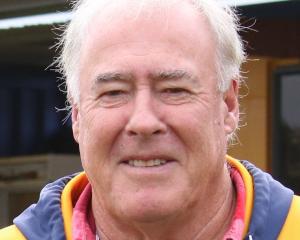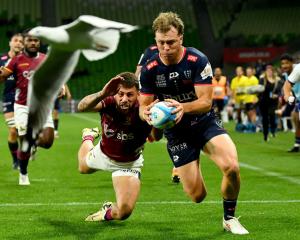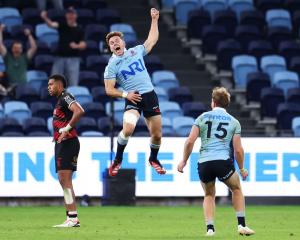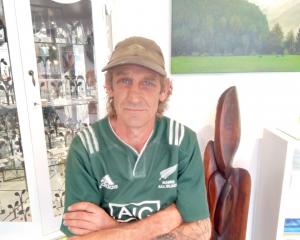
Honiss, whose 46 test appointments are the most for a referee, was in action for the final time last weekend in the second test between Australia and France in Brisbane.
He said he had thought about hanging up his whistle for the past three or four months and was looking forward to his new Hamilton-based job with Downer EDI Works, where he will continue to be involved in rugby.
As national customer relations manager, Honiss will be in charge of the company's sponsorship of the Super 14 referees.
"I just thought it was the right time to pull the pin," he said.
"I'm very proud of what I've achieved and I always wanted to leave on my own terms."
Honiss, 45, controlled 211 first-class matches, including 49 Super fixtures and 71 national provincial championship or Air NZ Cup games.
He made his test debut in the World Cup qualifier between Tahiti and the Cook Island in 1997 and went on to officiate at the 1999, 2003 and 2007 World Cup tournaments.
He cited his biggest highlight as controlling the third/fourth playoff between Argentina and France in Paris last October, when he surpassed Welshman Derek Bevan's record of 44 tests.
Honiss, like all referees, has had his share of criticism, and he said a thick skin was a pre-requisite for the job.
"If you want to become a referee, you have to be able to take a bit of stick from time to time."
The important thing was to separate what was justified criticism from what wasn't, and to learn from the former to improve.
Honiss said the biggest change he had noticed during his 11 years as an international referee was the increased speed of the game.
Players now displayed skills that weren't seen before the professional era.
That meant increased fitness for referees to get around the field, but also being able to cope with the pace that things happened in front of them.
"Players are arriving at the breakdown with speed and ferocity that you have to be able to adjust your own running lines and your own arrival position to be able to see things as accurately as you can to make the right call," he said.
"In certain circumstances, when you slow the television replay down, you can find three or four things that have gone on, so it's just your ability to handle how fast everything happens."
Honiss also said this year had been a particular challenge for referees, with the constant adapting from old to new laws, and back, as they went from the Six Nations, to the Super 14, the early Southern Hemisphere tests and now the Tri-Nations.
International Rugby Board referee manager Paddy O'Brien said Honiss' experience could not be replaced overnight and he would be a loss to international rugby.
"Paul epitomised professionalism," he said.
"He was the ultimate team player and, from a personal point of view, I will miss his leadership within the elite panel."












